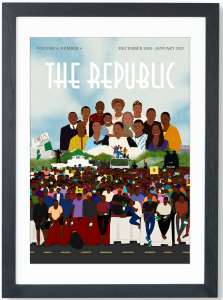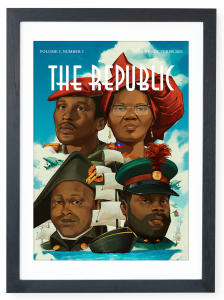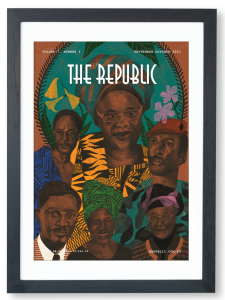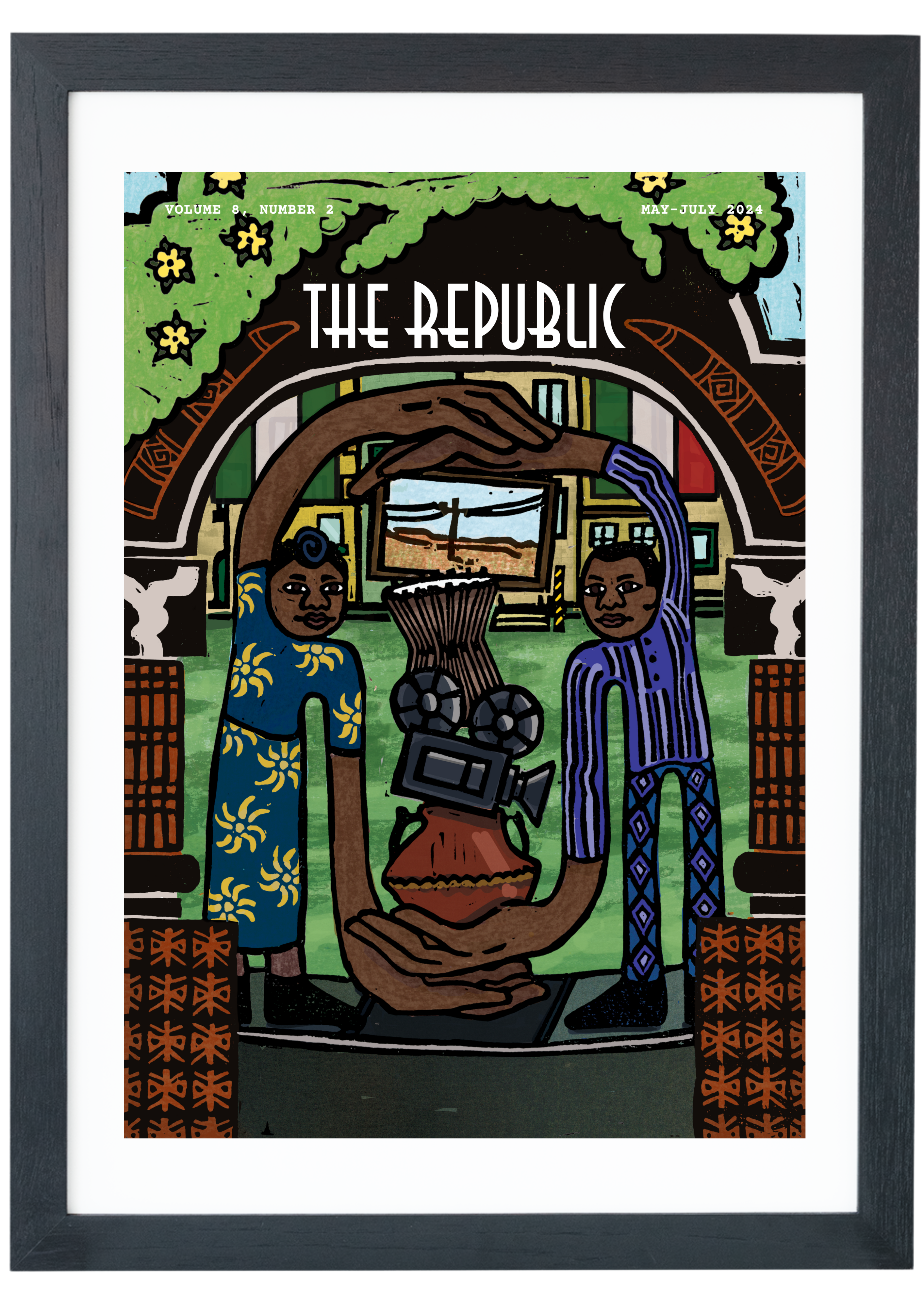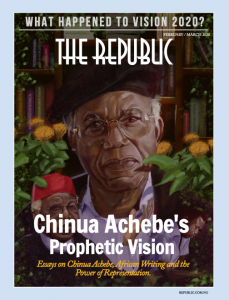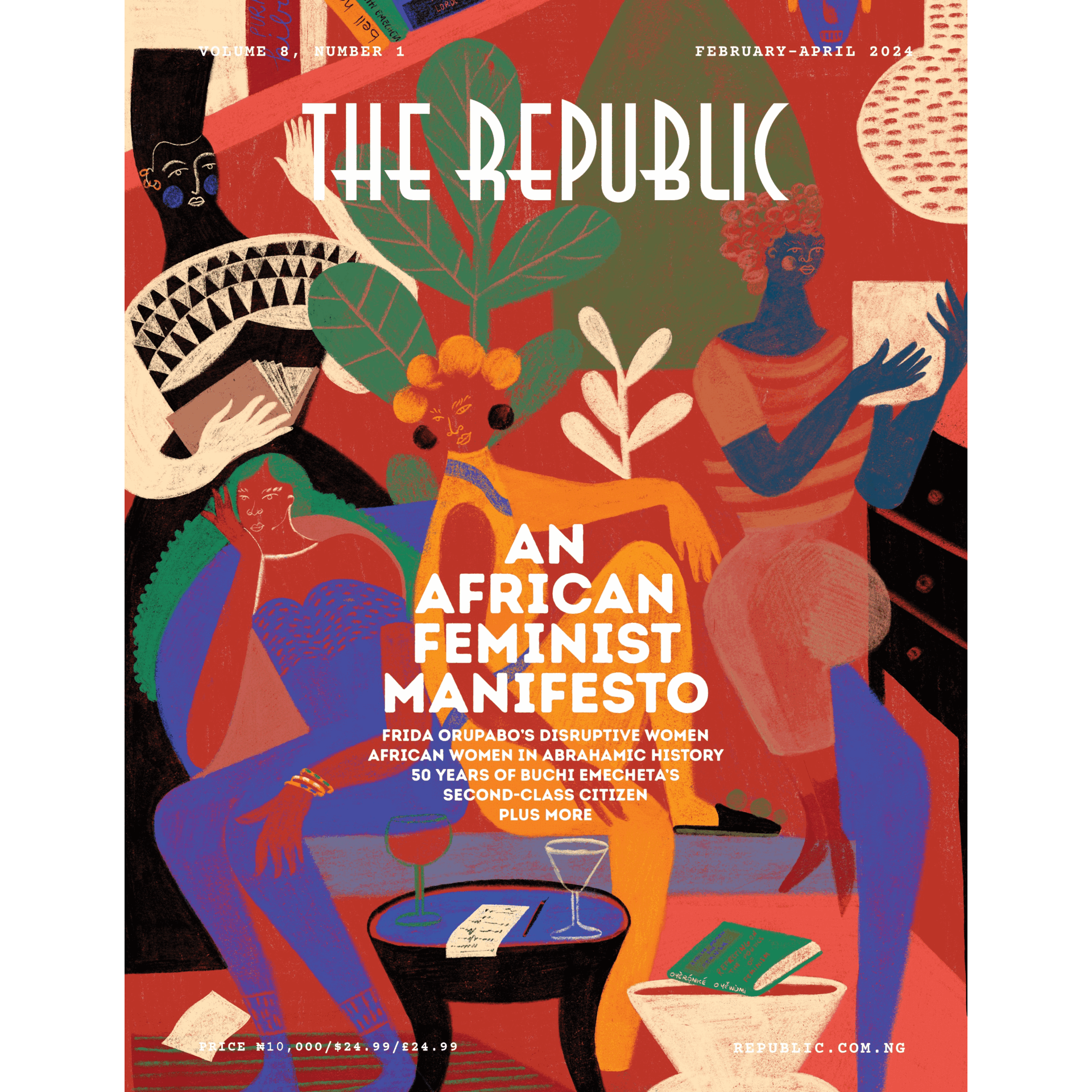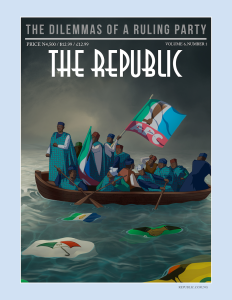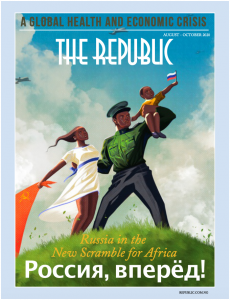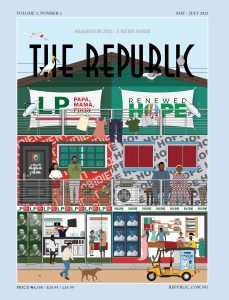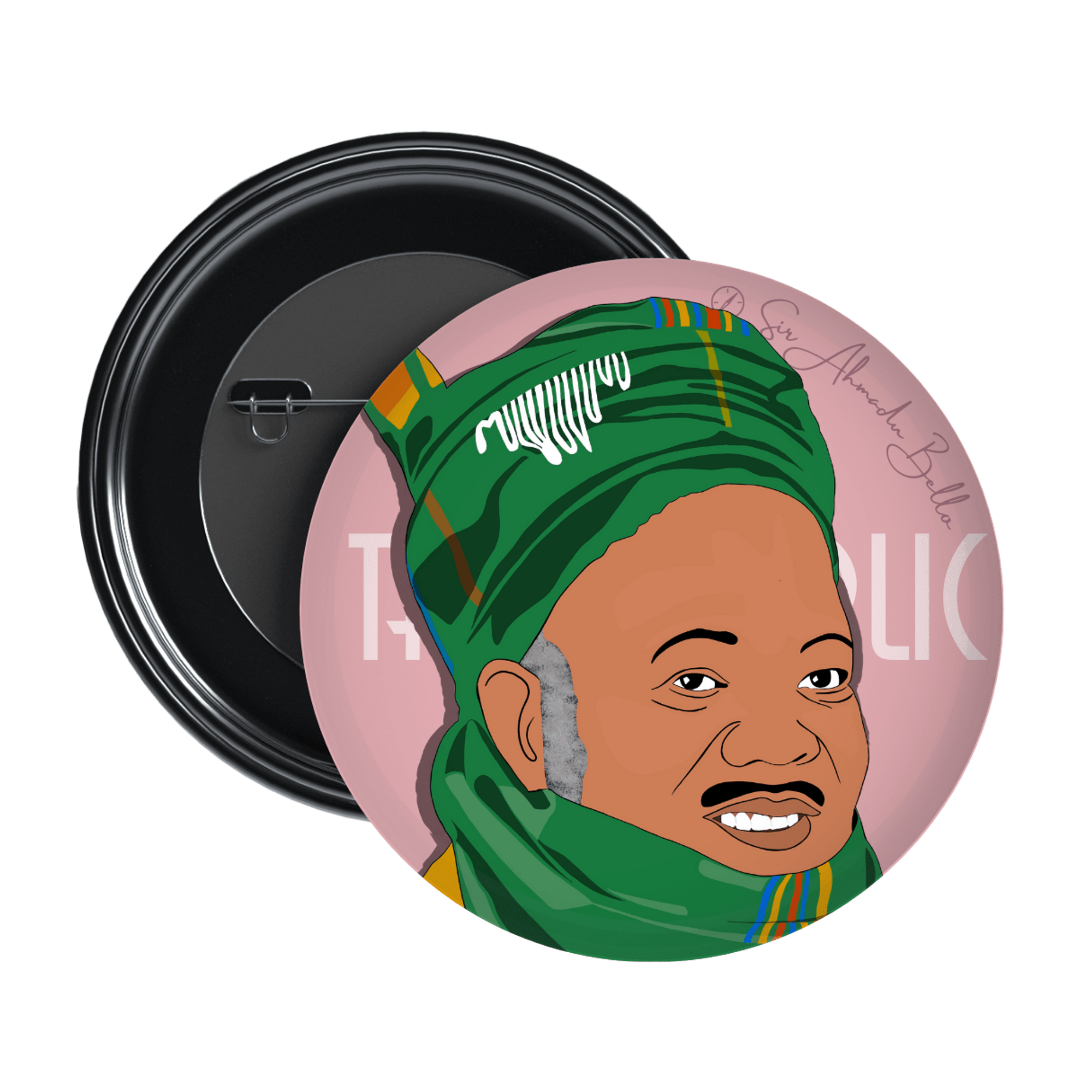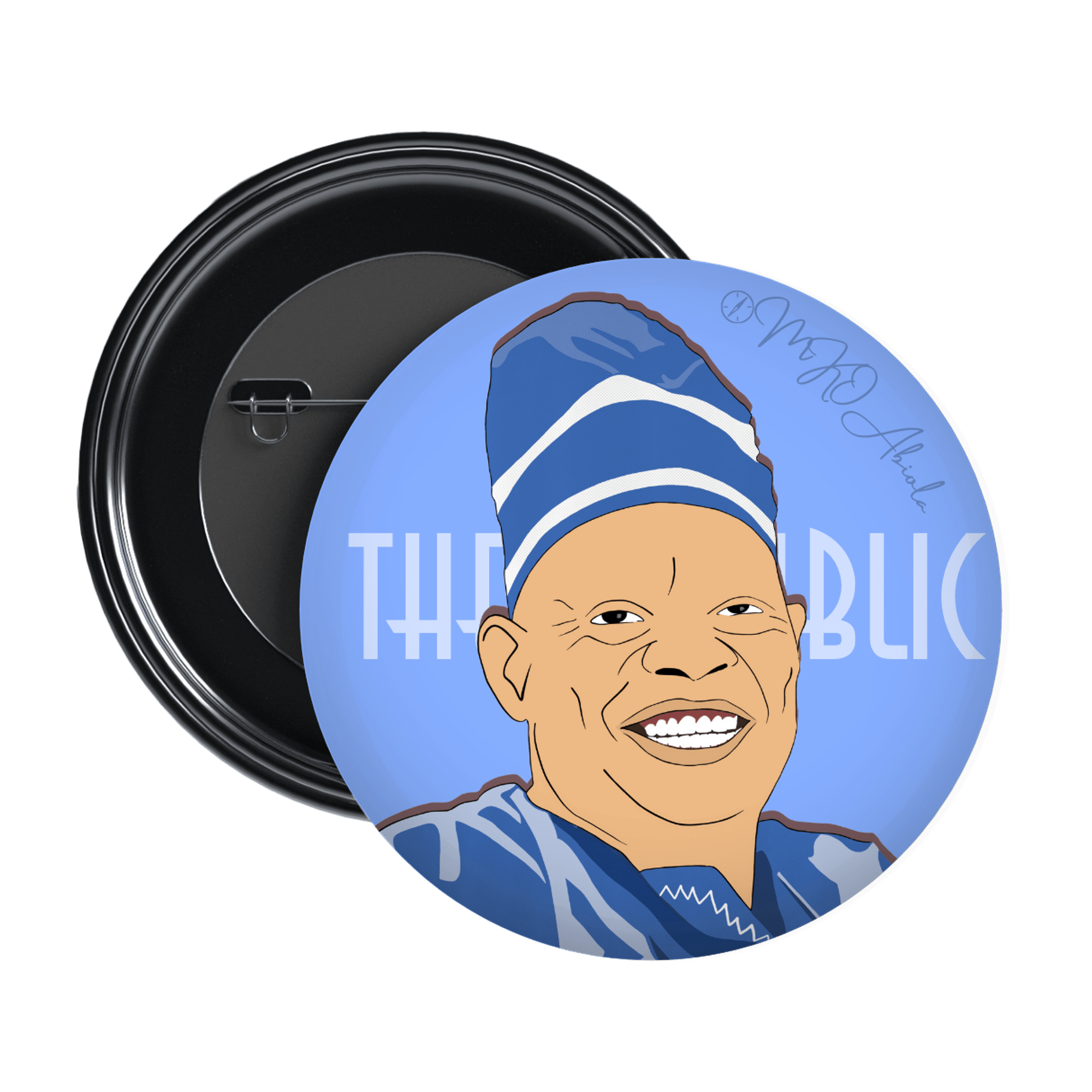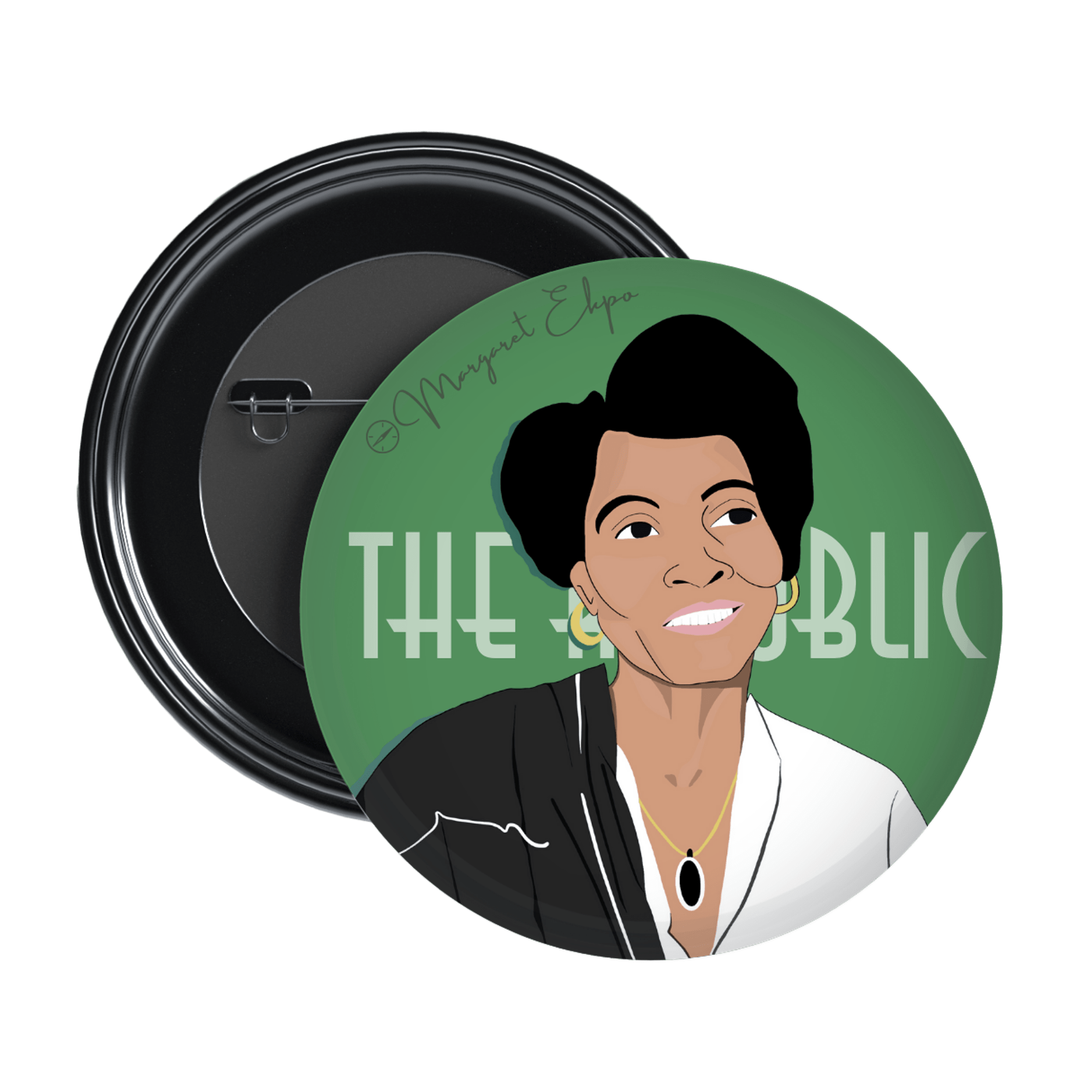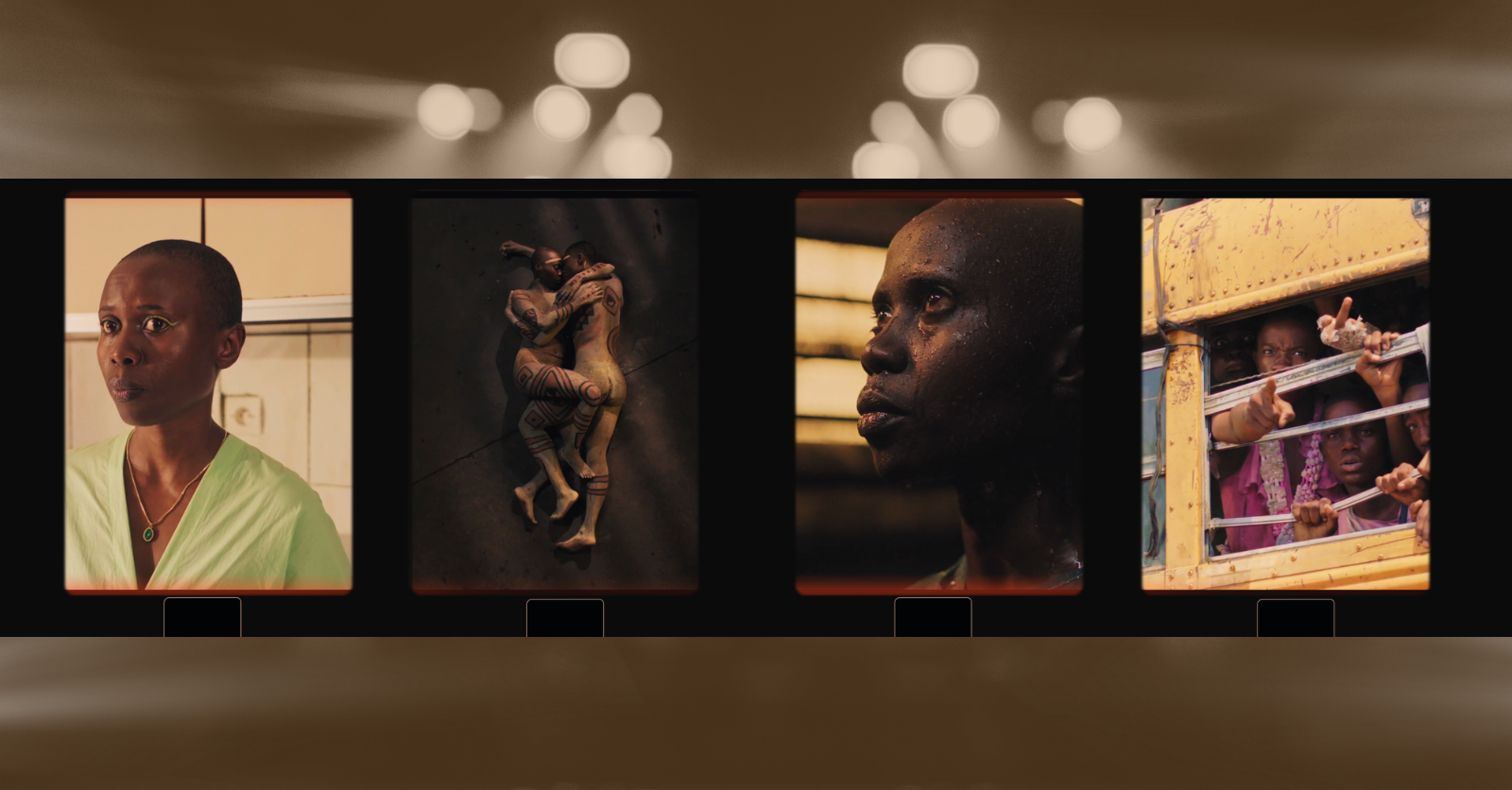
Stills from ‘Augure’ Trailer (Omen, 2023). Filmfestival Oostende / THE REPUBLIC.
THE MINISTRY OF ARTS / FILM DEPT.
The AMVCA’s 10-Year Milestone

Stills from ‘Augure’ Trailer (Omen, 2023). Filmfestival Oostende / THE REPUBLIC.
THE MINISTRY OF ARTS / FILM DEPT.
The AMVCA’s 10-Year Milestone
A decade since it was first established, the annual Africa Magic Viewers’ Choice Awards (AMVCA) still attracts impressive and enthusiastic attention from African filmmakers, investors and cinephiles. Launched by South African entertainment company, MultiChoice, in 2013 to address the pressing need for recognizing African filmmakers and content creators, the award show has consistently shone a spotlight on African talents. Today, the award show and, by extension, the African film industry, have grown beyond geographical borders. African filmmakers have won coveted awards and gained laudable recognition at international film festivals. Recently, for instance, Brazilian cinematographer, Lilis Soares, won the World Cinema Dramatic Special Jury Award for Cinematography, for C.J ‘Fiery’ Obasi’s Mami Wata—the first homegrown Nigerian film to secure a screening spot at Sundance Film Festival. Additionally, Ugandan documentary, Bobi Wine: The People’s President, co-directed by Moses Bwayo and Christopher Sharp, Morocco’s Asmae El Moudir’s The Mother of All Lies, and Tunisia’s Kaouther Ben Hania’s Four Daughters competed strongly in the 2024 Academy Award List.
Babatunde Apalowo’s debut film, All Colours of the World Are Between Black and White, and Apolline Traoré’s Sira, which secured the Panorama Audience Award at the Berlinale Film Festival, also piqued the interest of non-African audience to African films. Additionally, there has been an increase in international collaborations between African filmmakers and their Western counterparts with institutional support from cultural institutions. Although all these appear as being seemingly uncoordinated efforts, it shows that there is blossoming interest in shaping the African film industry. While the cinematic excellence and successes of these films and industry developments might be exclusive of the AMVCA, their presence in international film festivals and potential ability to imprint the lore of African cinema on foreign audiences, is in sync with what Femi Odugbemi, the head jury of the AMVCA, mentioned in a recent interview with Arise TV. According to Odugbemi, the AMVCA instils the need for technical and cinematic excellence in filmmakers. And this progress attests to his statement.
Now, the 10th edition of the AMVCA is scheduled to take place on May 11, 2024, in Lagos. The ceremony will be broadcast live in over 50 African countries. While there is much to celebrate, the award show still has some room to grow.
A FLICKER OF HOPE?
Following years of online protest by film enthusiasts and critics, the AMVCA organizers have conceded to one of the audiences’ requests: relying on its judges to select the winners for selected categories. Thus, unlike other years, these big categories—the Best Actor and Best Actress, Best Supporting Actor and Best Supporting Actress—will now be determined by the jury. This means actors and actresses can compete fairly based on commendable and impressive performances. Contrary to when massive social media campaigns and access to a large social media followership were yardsticks to winning these categories, now nominated actors and actresses with minimal followership can contest fairly for these award categories.
Nigerian culture journalist and writer, Jerry Chiemeke, has a somewhat conflicted response to the non-voting development. He appreciates that the organizers are open to listening to complaints from the audience. To Chiemeke, it shows that AMVCA, in its relentless effort to be the African Oscars, is attaining credibility for itself. However, Chiemeke asked, ‘Isn’t having non-voting categories in a viewers’ choice award a misnomer? If it’s a viewers’ choice award, why deprive viewers of their voting rights in certain categories?’ Chiemeke concludes that the organizers might want to consider changing the name of the award ceremony because ‘you can’t call it a viewers’ award and have non-voting categories.’
Earlier, the Best Writing category for film and TV series was one award. This year, Best Writing for Film and Best Writing for TV have been rightly separated. For an award show that is interested in meeting global standards, it is comical that it took it a decade before the AMVCA made this change. Although things are still unfolding, these progressive steps may indicate the organizers’ commitment to further listening to the demands of their audience and by extension its steadfast commitment to embracing global and industry-standard practices.
shop the republic
WHERE ARE THE OTHER NON-NIGERIAN FILMS?
In the AMVCA’s debut award nomination list in 2013, South Africa’s Otelo Burning, a docudrama directed by Sara Blecher, had 13 nominations. Trailing it was Nigeria’s The Mirror Boy with eleven nominations. After that year, the award’s list had only a few non-Nigerian names and films. This begs the following questions: is the AMVCA a Nigerian award show? And does the award show represent, even with its inherent issues, the creative depth of filmmakers across the continent?
Augure, (translated from French as Omen), written and directed by Baloji, the Belgian-Congolese rapper and filmmaker, is amongst the scant non-Nigerian titles and filmmakers nominated in the award’s list. Luci Debay (for Best Lead Actress), Marc Zinga for (Best Lead Actor) and Eliane Umuhire for (Best Supporting Actress), were all nominees from Baloji’s film. Additionally, Cameroonian director, Enah Johnscoth, is competing in the Best Director category for his film, Half Heaven, alongside six Nigerian directors. These two non-Nigerian films hint at a need to diversify the competing countries. Even when these non-Nigerian titles and filmmakers are nominated or secure a win (for instance, Abdisattar Ahmed’s winning the Best Supporting Actor in a movie or TV series for the Kenyan-Somali film Gacal in 2023), their success doesn’t always elicit recognition nor zealous interest from the Nigerian audience who have probably not seen the film nor know the filmmakers.
How do we salvage this lack of representation of non-Nigerian films and TV shows in the top categories? Chiemeke believes it amounts to solving two related problems: documentation and lack of structure. Each region in the continent is organizing its local award show and flexing its strength. ‘To have an independent award ceremony that would capture all films and non-Nigerian countries requires a level of pan-African unity which is somewhat lacking on the continent,’ Chiemeke concluded.
shop the republic
FILM MUSIC: AMVCA LUMPING OF ITS SOUND CATEGORY
Conversations around awarding film composers are also important and pressing. AMVCA’s 2024 nomination list was released almost two weeks after the premiere of We Talk Sound and IN Nollywood’s jointly produced documentary, Sounds of Nollywood. In the intimately-shot five-part documentary, Nigerian film composers (Ava Momoh, Tolu Obanro, Anu Afolayan, Kulanen Ikyo and Clement ‘DJ Klem’ Kponu) spoke about their unique journey into Nollywood, the challenges of being a film composer, and the meagre recognition of their craft and contribution to filmmaking. The AMVCA nomination list, with its knotting together disparate aspects of film sound into a single category, further testifies to the film composers’ subtle protest.
Speaking with Momoh, one of the nominated film composers for his work in Tolu Ajayi’s Over the Bridge, he mentioned how at AMVCA’s inception, there used to be a category for Best Music. Despite being innovative, this category is burdened by its own issues. It is unclear what the award category represents. ‘Is it an award category for Best Song or Score?’ Momoh asked. In its muddiness, the Best Music category unfairly bundled a 30-minute-long score to compete with a five-minute song. These are entirely different categories with their unique level of technical command. Reacting to the lumped sound category, Chiemeke said, ‘It is a problem if the organizers can’t draw the distinction between the different categories under film music.’
With the recent merging of the sound category, Momoh’s confusion as well as that of other film composers and Nollywood cinephiles is heightened. ‘As a creative, if I get a nomination, I get happy. But is the nomination for my specific work or not? Can you really have a sense of pride when you are supposedly being recognized for your work but not truly for the technicalities of your work?’ Momoh said with deep concern in his voice. Being that the AMVCA sound category doesn’t capture the multifaceted aspects of film sound—original sound, sound design and sound mixing—Momoh is hopeful that organizers of the award ceremony will pay attention to their demands.
The categories that exist now do not fully represent the wide range of work and the professionals involved in the audio post-production phase of filmmaking. As Momoh suggested in our discussion, if the award aims to honour professionals shaping the sonic landscape of Nollywood films and TV series, it should include categories not only for Best Original Song and Best Original Score, but also for Best Sound Design and Sound Mixing. ‘Despite the inexhaustible talented composers working in the industry, there is no single award show that gives the award for Best Original Score. Film composers want to be appraised for the specific work they do and be proud of it,’ he concluded.
shop the republic
TRIMMING DOWN ITS NOMINATION CATEGORIES
In addition to combining its sound categories, this year, the AMVCA has trimmed down its nomination list from 33 available categories to 27. What this implies is that the work of filmmakers and creatives involved in the forgone categories won’t be recognized. The filmmakers who contributed their time, sweat, and creativity to the success of a film or TV series might be overlooked. In the AMVCA’s official press release, head juror Odugbemi gave a somewhat vague reason for the scaling down. He explained that the pruned nomination list was due to a pressing need to meet global trends and standards, without specifying what global trends and standards these were.
With documented cultural and economic impact—investment into the film and television economy, training and creation of jobs for professionals—one cannot refute the AMVCA’s impact. As such, trimming down the award categories might be influenced by many reasons. Admittedly, the economy is in decline, and companies and sponsors of the award ceremony might have cut their financial commitments to the annual award. As valid as this business decision is, Momoh echoed my opinion when he opined that the award body should trust filmmakers and their audience with the truth of what informed their decisions—which remains largely unknown.
Nollywood, unmindful of the numerous achievements of its practitioners, is still in its infancy. This applies to the AMVCA too. While the award organizers are still struggling with making sure the award show represents the breadth and length of talents on the continent and finding ways to attract more investment, one can passively say the future isn’t bleak. Using Momoh’s words, ‘The more we talk about it and the attention it gets, things might change.’ As stakeholders, we will keep shouting, till the point of hoarseness and aphonia. And like committed protestants, we will keep writing and making demands, with passionate vigour, convinced that reforms and excellence are attainable⎈




